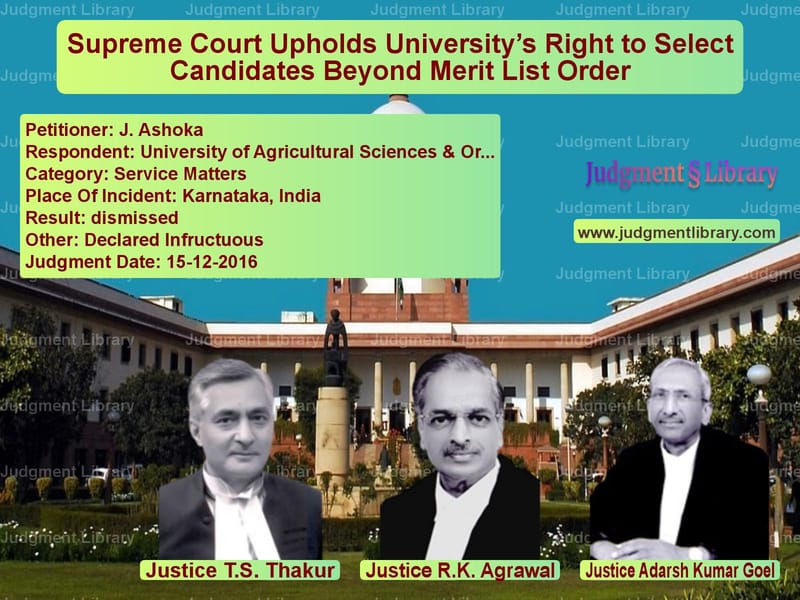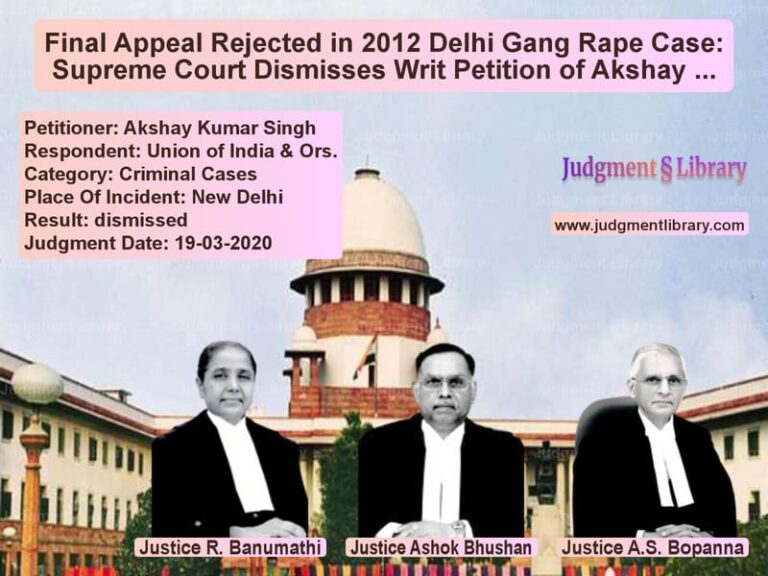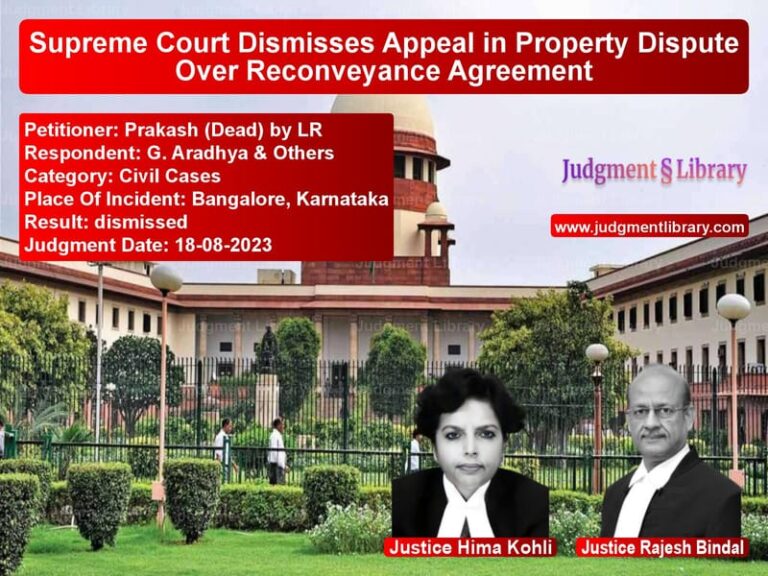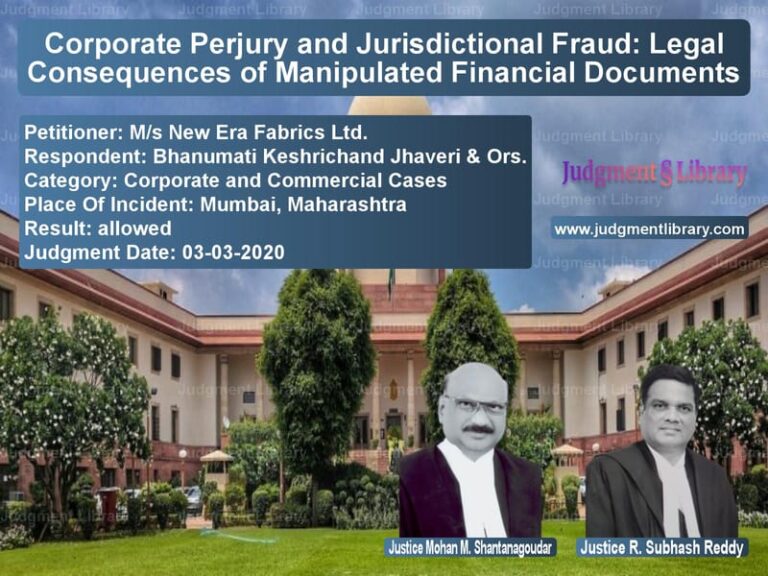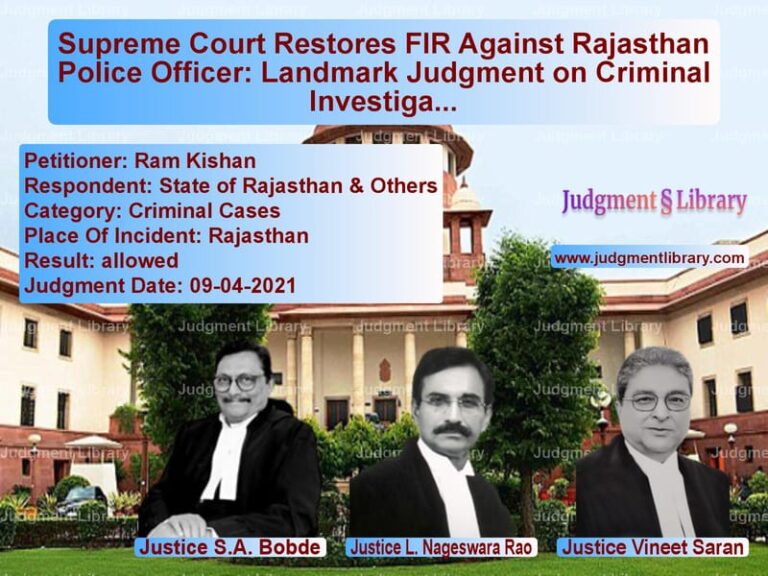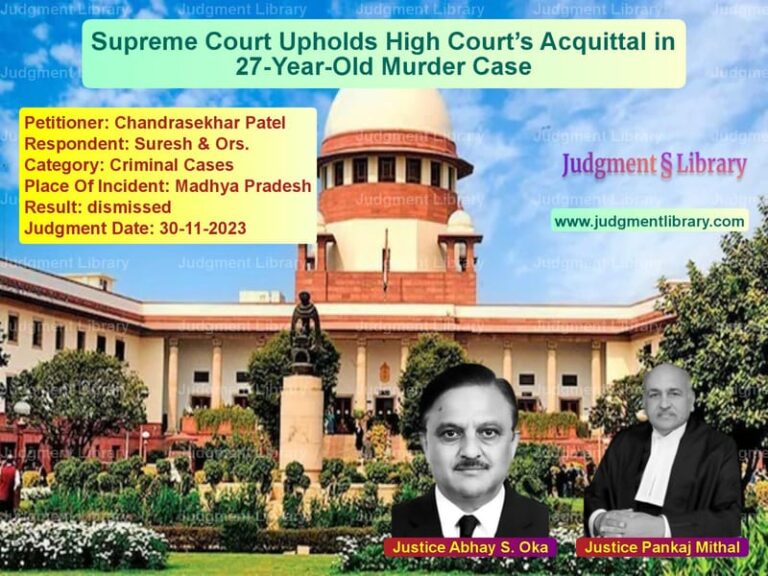Supreme Court Upholds University’s Right to Select Candidates Beyond Merit List Order
The case of J. Ashoka vs. University of Agricultural Sciences & Ors. examined the legality of a university’s selection process in appointing an Assistant Professor of Sericulture. The Supreme Court upheld the selection of a candidate who was placed lower on the merit list, stating that the university had the discretion to choose the best candidate based on various considerations beyond mere rank order.
Background of the Case
In 1995, the University of Agricultural Sciences, Bangalore advertised three vacancies for the post of Assistant Professor of Sericulture. One position was reserved for Scheduled Castes, another for Scheduled Tribes, and the third for the General Merit category.
The selection process involved a Selection Committee that prepared a merit list based on qualifications, experience, and publications. The appellant, J. Ashoka, was ranked first on the list, followed by three other candidates: R. Narasimharaju, K.C. Narayanaswamy, and Dr. Fathima Sadathulla.
However, the university’s Board of Regents overruled the merit list and selected K.C. Narayanaswamy (ranked third) and Dr. Fathima Sadathulla (ranked fourth) for the available positions. This decision led to a series of legal challenges.
Legal Issues
- Did the University of Agricultural Sciences violate principles of merit-based selection by bypassing the top-ranked candidate?
- Can a selection authority appoint a lower-ranked candidate by overriding the merit list?
- What is the scope of judicial review in university appointments?
- Was the appointment process arbitrary, unfair, or influenced by extraneous considerations?
Arguments by the Petitioner (J. Ashoka)
- The Board of Regents had no valid reason to overlook the merit list prepared by the Selection Committee.
- Once the committee ranked the candidates in order of merit, the board was bound to follow the list.
- The decision to appoint a lower-ranked candidate violated Articles 14 and 16 of the Constitution, as it denied equal opportunity in public employment.
- The appointment of Dr. Sadathulla was based on extraneous factors such as her existing employment at the university and her Ph.D. qualification, which was not a requirement in the original job advertisement.
Arguments by the Respondents (University & Selected Candidates)
- The Board of Regents had the discretion to appoint the best candidate based on factors beyond the merit list ranking.
- Dr. Sadathulla’s Ph.D. qualification and long-term service at the university made her a more suitable candidate for the position.
- The decision was not arbitrary, as it was based on valid considerations, including academic qualifications and continuity of service.
- Rejecting Dr. Sadathulla’s appointment would have deprived her of employment opportunities.
Supreme Court’s Judgment
The Supreme Court ruled in favor of the University and upheld the selection of Dr. Sadathulla. The key findings were:
- The University was within its rights to select a candidate placed lower on the merit list, provided there were valid reasons.
- The selection committee’s recommendations were advisory, and the Board of Regents had final discretion in appointments.
- Additional qualifications such as a Ph.D. in Sericulture and long-standing service were relevant factors in selecting the best candidate.
- The appointment process was not arbitrary since the Board assigned specific reasons for preferring Dr. Sadathulla.
The Court stated:
“Whenever a selection authority considers a candidate ranked lower in merit over one ranked higher, it must provide valid reasons. In this case, the board recorded reasons for selecting the respondent, including her Ph.D., experience, and continuity of service, which were not arbitrary.”
Impact of the Judgment
- Reinforces that merit lists are not absolute and selection authorities have discretion to choose the best candidate.
- Establishes that a Ph.D. and experience can be valid grounds for selection, even if they were not mandatory in the job advertisement.
- Sets a precedent that university governing bodies have significant autonomy in selecting faculty members.
- Limits the scope of judicial review in appointment cases, emphasizing that courts should not interfere unless decisions are arbitrary or unconstitutional.
Conclusion
The Supreme Court’s ruling clarifies the discretion available to universities in selecting candidates. While merit lists serve as a guideline, they do not bind selection authorities. This judgment ensures that selection processes remain flexible to accommodate institutional requirements while maintaining fairness and transparency.
Don’t miss out on the full details! Download the complete judgment in PDF format below and gain valuable insights instantly!
Download Judgment: J. Ashoka vs University of Agricu Supreme Court of India Judgment Dated 15-12-2016.pdf
Direct Downlaod Judgment: Direct downlaod this Judgment
See all petitions in Employment Disputes
See all petitions in Judgment by T.S. Thakur
See all petitions in Judgment by R K Agrawal
See all petitions in Judgment by Adarsh Kumar Goel
See all petitions in dismissed
See all petitions in Declared Infructuous
See all petitions in supreme court of India judgments December 2016
See all petitions in 2016 judgments
See all posts in Service Matters Category
See all allowed petitions in Service Matters Category
See all Dismissed petitions in Service Matters Category
See all partially allowed petitions in Service Matters Category

